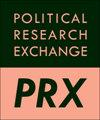Measuring objective and subjective class: the effects of survey questionnaires on the study of class voting
IF 1.8
Q2 POLITICAL SCIENCE
引用次数: 1
Abstract
ABSTRACT Despite its crucial role for social scientists, the concept of social class remains elusive and its measurement inconsistent. Building on the class voting literature, this study presents an updated assessment of the explanatory power of vote of objective class indicators (occupation, income and education) and subjective class measures. To do so, it uses three class schemes commonly used in survey questionnaires: two of them refer to the lowest categories as ‘lower’ or ‘working’ class alternatively, while the third one uses a numerical scale. This article scrutinizes (a) the link between objective indicators and subjective class, (b) the association between the two sets of measures and voting behaviour and ideology and (c) the influence of different subjective class measurements on the results. Based on an experimental survey fielded in Catalonia, the results show that different subjective class schemes result in substantially different distributions of class identities. Despite these differences, all subjective class measures appear to be more robustly associated with political preferences and behaviour than objective indicators. Once subjective class is controlled for, the significance of the association between objective indicators and the dependent variable is influenced by the stratifying power of the survey question used to measure class identity.测量客观和主观阶级:调查问卷对阶级投票研究的影响
摘要尽管社会阶层的概念对社会科学家来说至关重要,但它仍然难以捉摸,其衡量标准也不一致。在阶级投票文献的基础上,本研究对客观阶级指标(职业、收入和教育)和主观阶级指标的投票解释力进行了最新评估。为此,它使用了调查问卷中常用的三种类别方案:其中两种方案将最低类别称为“下层”或“工人”阶级,而第三种方案则使用数字量表。本文仔细研究了(a)客观指标与主观阶层之间的联系,(b)两组指标与投票行为和意识形态之间的联系以及(c)不同主观阶层指标对结果的影响。基于在加泰罗尼亚进行的一项实验调查,结果表明,不同的主观阶级方案导致了阶级身份的显著不同分布。尽管存在这些差异,但与客观指标相比,所有主观的阶级衡量标准似乎都与政治偏好和行为更紧密地联系在一起。一旦控制了主观阶级,客观指标和因变量之间的关联的重要性就会受到用于衡量阶级认同的调查问题的分层能力的影响。
本文章由计算机程序翻译,如有差异,请以英文原文为准。
求助全文
约1分钟内获得全文
求助全文

 求助内容:
求助内容: 应助结果提醒方式:
应助结果提醒方式:


